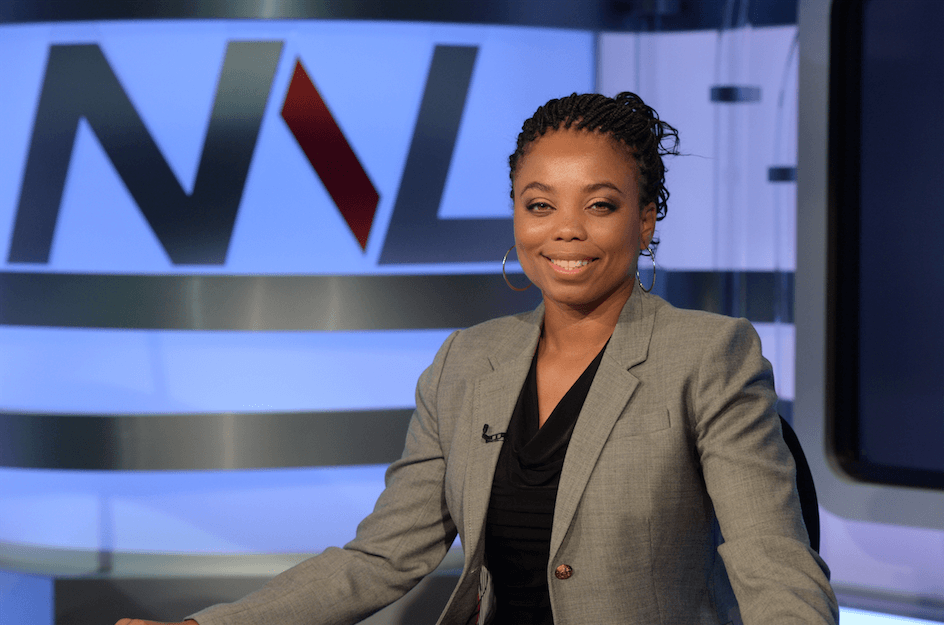by The Cowl Editor on September 21, 2017
Opinion

by Bridget Blain ’19
Opinion Staff
Throughout the election and now several months into the presidency of Donald Trump, the current political climate has often been compared to living in a dystopian novel, such as 1984 or Fahrenheit 451.
Trump’s reactions to being criticized for anything from his policies to his tweets often bring up the topic of censorship. The current battle between ESPN anchor Jemele Hill and Donald Trump has once again brought up issues of the right to free speech.
On Monday, Jemele Hill tweeted “Donald Trump is a white supremacist who has largely surrounded himself w/ other white supremacist.”
Unsurprisingly, Hill’s tweet immediately caused controversy and the Internet erupted with differing opinions.
Many praised Hill for being unafraid to voice her opinion while others called for her to be fired. Hill’s association with ESPN has called into question whether an employee of such a large and influential company had the right to express her own personal opinion about the president.
This controversy has brought into question the politics of a corporation like ESPN and their political neutrality. Politics are unavoidable in America, and corporations and people with large platforms do have a responsibility to use their voices for the greater good.
As an employee of ESPN, Hill represents the corporation, but does that mean she must censor herself and keep her views hidden? Hill’s tweet was not a hate speech or threatening in any way. Hill does represent ESPN, but ESPN also has a responsibility to respect Hill’s opinions and her freedom to use her voice.
Colleges also face the issue of freedom of speech and censorship, not only with their own professors but speakers who are invited to speak on campus.
Recently, Providence College has experienced this issue. In 2013, a lecture scheduled to be given by Dr. John Corvino on campus titled “The Meaning of (Gay) Marriage” was cancelled. This decision, as with Hill, brought forth both criticism and praise. Providence College is not the only college that has had issues with invited lecturers.
At University of California Berkeley, for example, nine people were arrested this past Friday during a protest against Ben Shapiro, a conservative writer, giving a lecture on campus. Colleges do have a large responsibility when it comes to deciding who should give lectures on their campuses, but it is also important to remind students the possible benefits of hearing opinions that differ from theirs.
This also brings the division between free speech and hate speech into play. A lecturer who is known to promote hate speech and offensive or harmful views should not be speaking on a college campus.
Hate speech has no place anywhere and is never appropriate. Just because a lecturer comes to a college campus and presents his or her view does not mean the college is fully in support and agreement with it.
Similarly, Jemele Hill stating her opinion on her own Twitter account does not mean that everyone working at ESPN has the same views. Hill was not promoting hate speech nor was she presenting herself as a danger to anyone. Hearing both sides is essential to fully understanding an issue and creating important dialogue.
The fact that ESPN did not fire Hill does not mean the company supports her, just as a college inviting a lecturer to their campus does not communicate that the college itself is in agreement with the lecturer. As long someone is not hateful or threatening, his or her voice has a right to be heard.